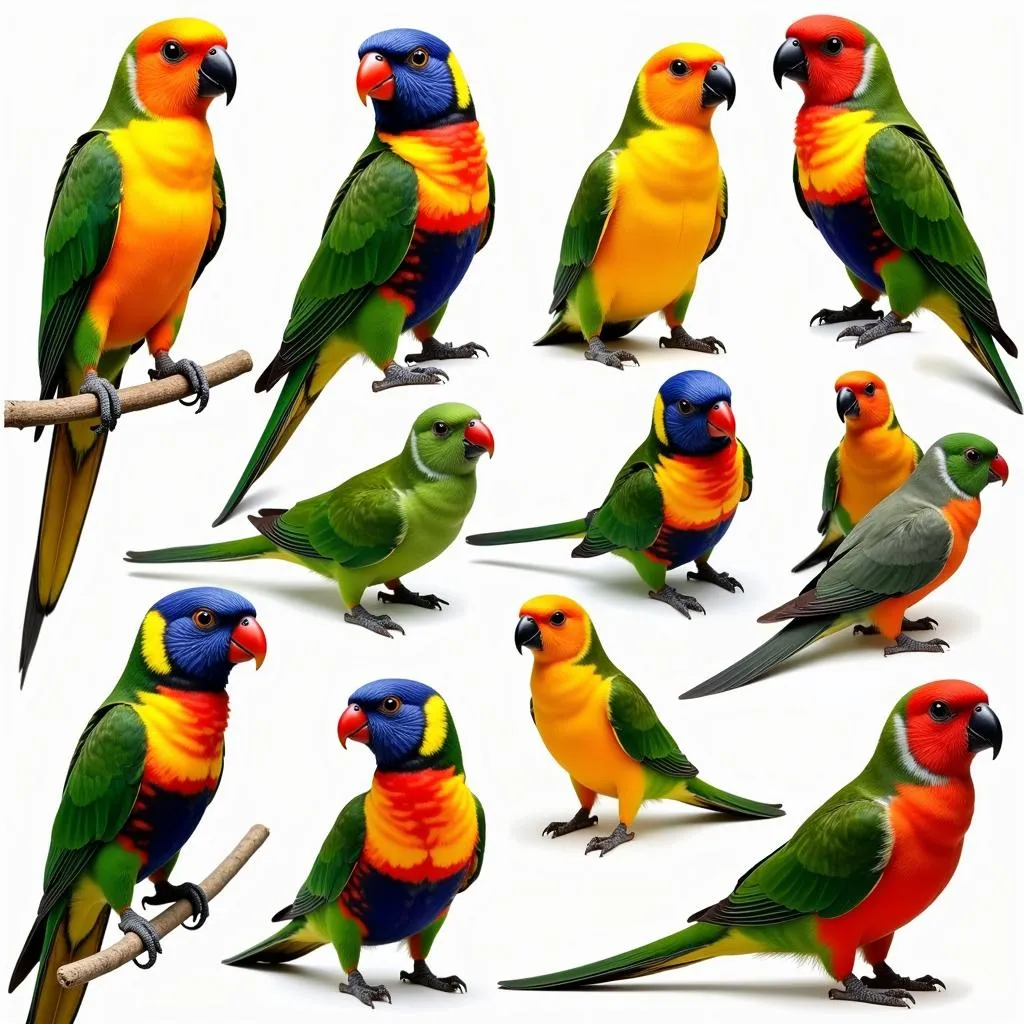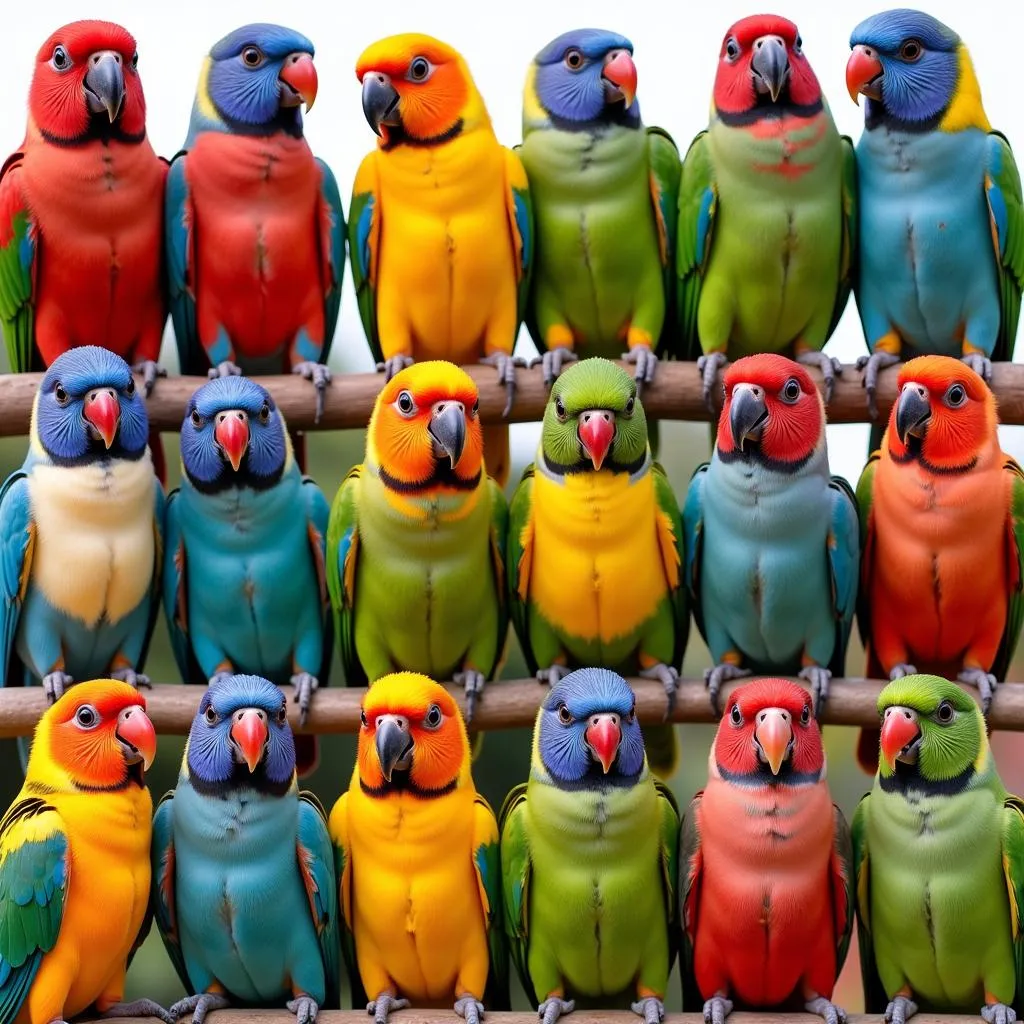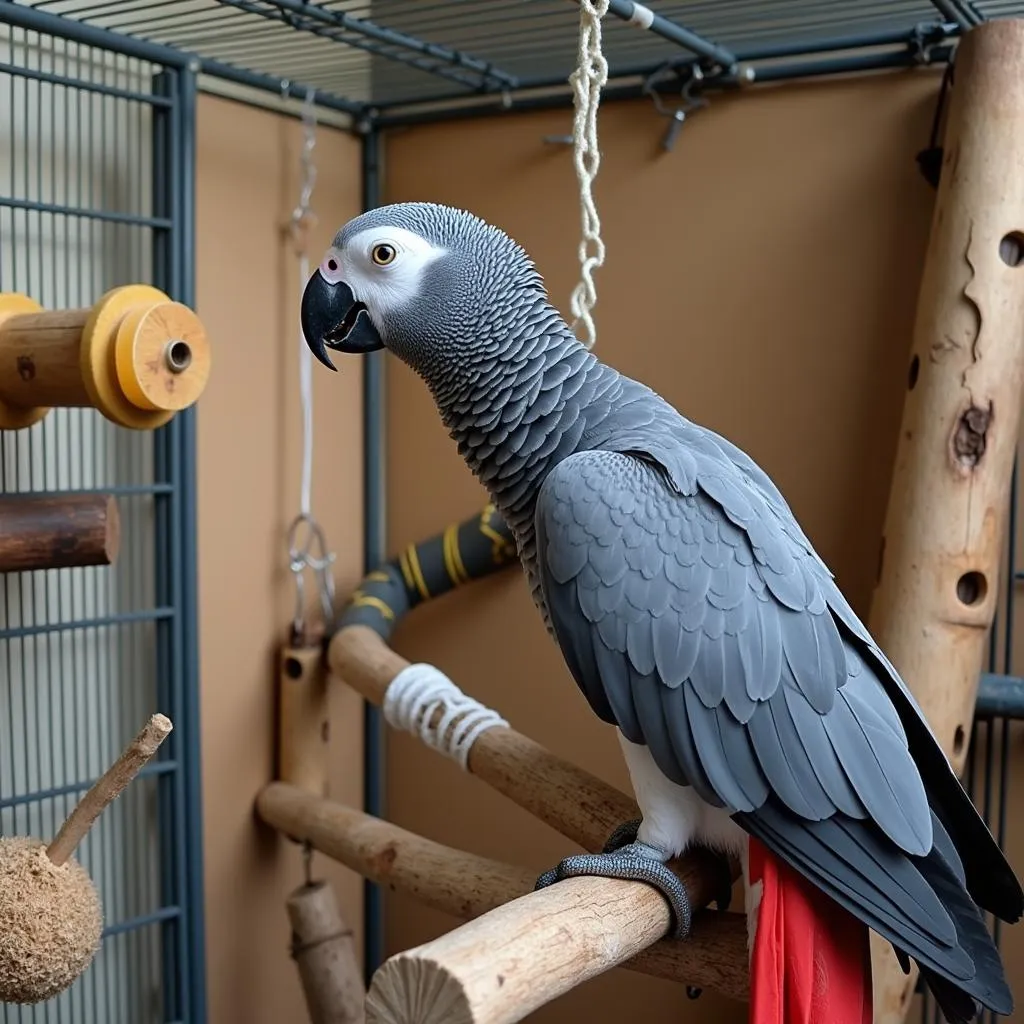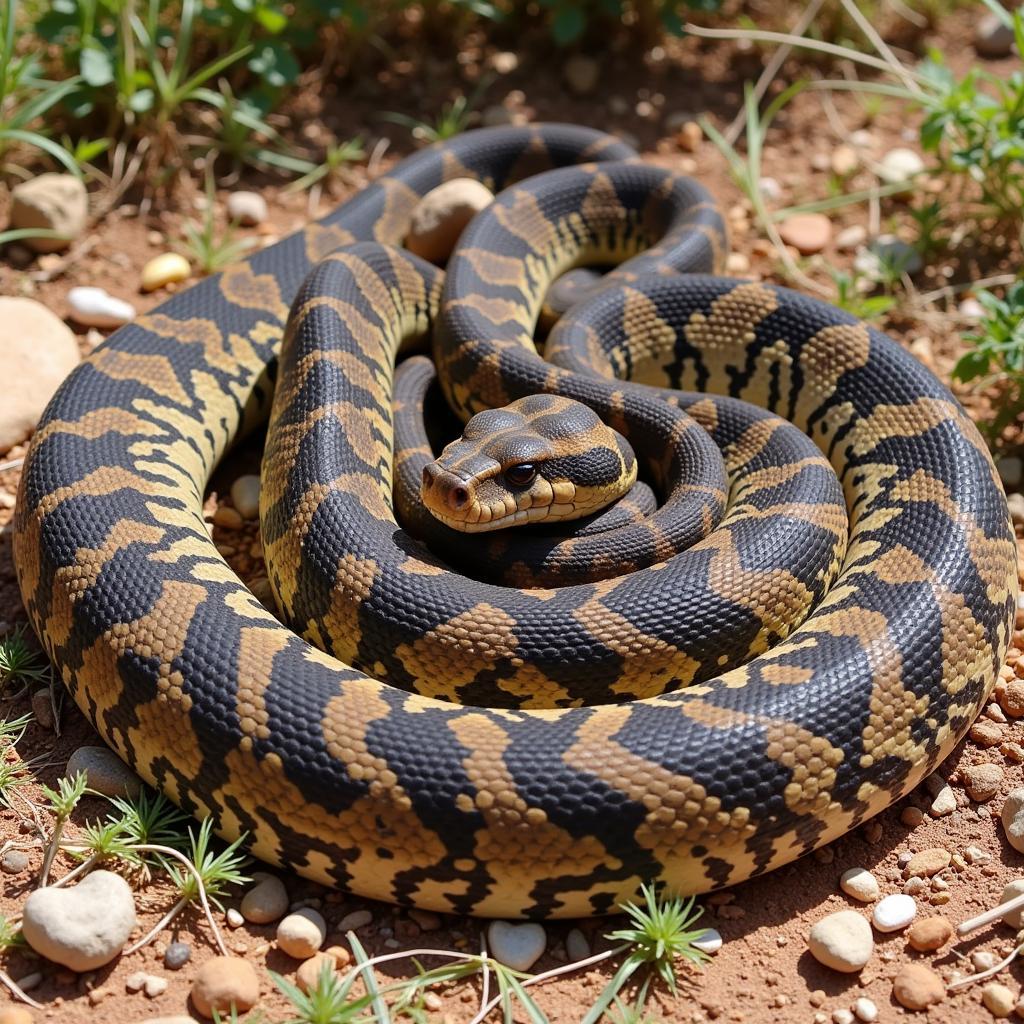African Love Birds Variety: A Colorful Guide to These Affectionate Parrots
African lovebirds are renowned worldwide for their vibrant plumage and affectionate nature. These small parrots, native to the African continent, come in a dazzling array of colors and patterns, making them a popular choice for bird enthusiasts. From the peach-faced lovebird’s rosy hues to the black-masked lovebird’s striking contrast, each variety boasts unique characteristics that contribute to their charm. This guide delves into the fascinating world of African lovebird varieties, exploring their diverse appearances, personalities, and the joys of sharing your life with these captivating companions.
 Different African Lovebird Species
Different African Lovebird Species
Unveiling the Diversity of African Lovebird Varieties
The term “African lovebird” encompasses nine distinct species, each with its own set of captivating characteristics:
- Peach-faced Lovebird (Agapornis roseicollis): Arguably the most popular variety, peach-faced lovebirds are known for their vibrant green bodies, peachy-pink faces, and playful personalities.
- Masked Lovebird (Agapornis personatus): As their name suggests, masked lovebirds sport a distinctive black mask around their faces, contrasting beautifully with their bright yellow bodies.
- Fischer’s Lovebird (Agapornis fischeri): These lovebirds are a kaleidoscope of color, with green bodies, orange heads, and blue rumps. They are known for their energetic and mischievous nature.
- Black-cheeked Lovebird (Agapornis nigrigenis): This lesser-known variety resembles the peach-faced lovebird but features black markings on their cheeks and a darker green plumage.
- Nyasa Lovebird (Agapornis lilianae): Similar in appearance to Fischer’s lovebirds, Nyasa lovebirds have a lighter green body and a more prominent orange coloration on their heads.
- Red-faced Lovebird (Agapornis pullarius): These striking lovebirds boast bright green bodies with a vibrant orange-red face and upper chest.
- Black-collared Lovebird (Agapornis swindernianus): This unique variety sports a narrow black band around its neck, distinguishing it from other lovebird species.
- Abyssinian Lovebird (Agapornis taranta): The largest of the lovebird species, Abyssinian lovebirds have predominantly green plumage with red markings on their heads.
- Madagascar Lovebird (Agapornis canus): Endemic to Madagascar, this species displays sexual dimorphism, with males exhibiting grey heads and females sporting green plumage.
 Lovebird Color Mutations
Lovebird Color Mutations
Beyond the Basics: Exploring Lovebird Personalities
African lovebirds are highly social creatures, thriving in pairs or small flocks in their natural habitats. Their affectionate nature extends to their human companions, forming strong bonds and displaying playful antics.
While each lovebird has a unique personality, certain traits are common across the different varieties. For example, peach-faced lovebirds are known for their playful and energetic nature, while masked lovebirds are often described as more mischievous and curious.
Understanding the individual personality traits of different lovebird varieties can help potential owners choose a bird that best suits their lifestyle and preferences.
Creating a Nurturing Home for your African Lovebirds
Providing a safe and stimulating environment is crucial for the well-being of your African lovebirds.
Essential Elements for a Happy Lovebird Home:
- Spacious Cage: A roomy cage with ample space for climbing, playing, and exploring is essential.
- Variety of Toys: Lovebirds are intelligent creatures that thrive on mental stimulation. Providing a variety of toys, such as swings, foraging toys, and chew toys, will keep them entertained and engaged.
- Nutritious Diet: A balanced diet consisting of high-quality birdseed, fresh fruits, and vegetables is vital for their health and longevity.
- Social Interaction: Lovebirds are highly social animals that crave interaction. Spending quality time with your feathered companions, whether through play, training, or simply talking to them, is crucial for their emotional well-being.
 Enrichment for African Grey Parrots
Enrichment for African Grey Parrots
FAQs: Answering Your African Lovebird Queries
What is the lifespan of an African lovebird?
With proper care, African lovebirds can live for 10-15 years, with some individuals even reaching 20 years of age.
Are African lovebirds noisy?
While African lovebirds are not as loud as some larger parrot species, they do have distinctive chirps and calls, especially during their active hours.
Do African lovebirds require a lot of attention?
Yes, African lovebirds thrive on social interaction and require daily attention from their human companions to prevent boredom and loneliness.
Can African lovebirds learn to talk?
While not known for their talking ability like some other parrot species, some African lovebirds can learn to mimic words and phrases with proper training and patience.
What is the best way to bond with my African lovebird?
Spending quality time with your lovebird, engaging in play, offering treats, and talking to them in a gentle voice are all effective ways to foster a strong bond.
Seeking Further Guidance on African Lovebirds?
For more insights into the captivating world of African lovebirds, explore our other informative articles:
Your Feathered Companion Awaits: Embark on the Lovebird Journey
Choosing to share your life with an African lovebird is a rewarding experience. These captivating creatures bring joy, laughter, and companionship into the lives of their human families.
If you’re ready to open your heart to the affectionate nature of African lovebirds, remember that responsible ownership involves understanding their needs, providing a nurturing environment, and embracing the unique personality of your feathered friend.
Contact us for further assistance at:
Phone Number: +255768904061
Email: kaka.mag@gmail.com
Address: Mbarali DC Mawindi, Kangaga, Tanzania.
Our dedicated customer support team is available 24/7 to answer your questions.




